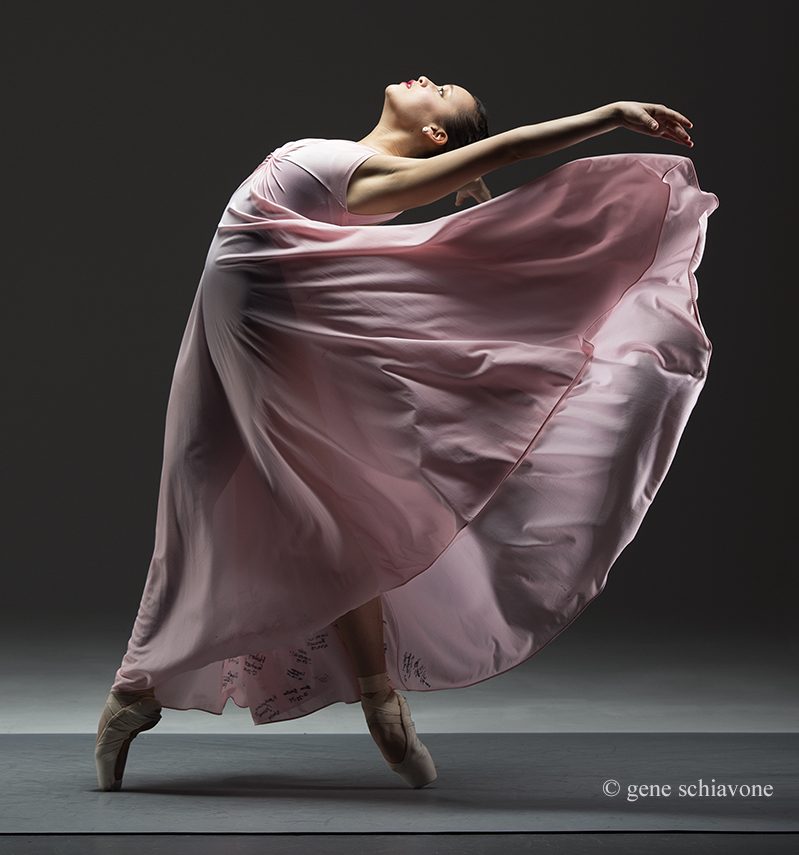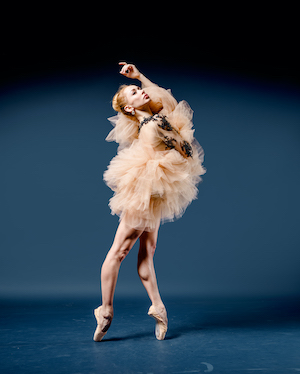Claudia Suarez, Arts Ballet Theatre of Florida, tells us what you can expect as an Apprentice in a professional ballet company.
One of the things I love the most about ballet is that I get to learn something new every day, even if I take the same 1.5-hour class or rehearse the same thing as the day before.
Apprentice dancer’s duties
An Apprentice dancer’s duty is, well, you guessed it, to learn. I relate the meaning of the word ‘apprentice’ to the Spanish translation of ‘learning’, which is ‘aprender’. And what matters the most at this young and fresh age is the experience, so it’s just like an internship.
There is something special about being an Apprentice. And although it’s the most junior position in the company’s pyramid, it enables me to grown and begin to develop my dance career.
I learn new choreographies, I get to work professionally with directors, and discover new things about my body along the way. Most of all, I get to learn from my teachers and colleagues, so much more than in a dance school setting.

- Claudia Suárez, photo by Gene Schiavone
Learning from experienced dancers
In my case, I am the youngest in the company. Through my position, I get to glimpse the life of working with a professional company. My fellow dancers are all older and more experienced than me, and I love to watch them in class and see the best that I can take from each.
We all know dancing is a competition, and everyone wants to get on the higher spot. Some of us are lucky to make it to the corps de ballet, but others have exceptional opportunities rising through the ranks.
All apprentices work hard to get a ‘spot’ in the corps lines. In bigger companies, Apprentices are called to many rehearsals, but they may not get to perform on stage all the time… or maybe not at all. Some of them will take a ‘spot’ just to learn.
I make sure I know all the spots just in case. I am always looking for any changes to the corps structure and formations, any change to the choreography itself, and I sometimes even ask questions to the director about the old version versus the new one. This way I’m prepared if any emergencies that come up.
Do Apprentices get paid?
We all know getting paid is a huge positive for doing what we love. But you see, the majority of the companies around the world do not pay Apprentices, and the majority of the big, recognized companies do not have an Apprenticeship program.
I consider myself lucky with my first professional experience and the opportunity to work with professional dancers. I do not get paid like my colleagues, but I get my most important instrument – my pointe shoes – as pay from the company all season. This is critical as pointe shoes are typically expensive and last so little time.
As much as I would like to get paid for every day at ‘work’, the experience of being side by side with professional dancers is worth more than the money itself at this point in my life.

- Claudia Suárez, photo by Gene Schiavone
From the top spot at the school to the very bottom of the pyramid…
Maybe the first shock Apprentices receive at big companies is the way the directors and Ballet Misters and Mistresses treat them. Now, instead of your school teacher working patiently with you and your friends, you are now ‘expected’ to do things: learn corp choreographies really fast, ready for emergencies, overcome your technical difficulties and many other things.
They expect a professional performance from you. It might seem they are not paying attention to you at all, but on the contrary: you are constantly on a test. They are trying to see if you can handle the hard work a company goes through and if you can handle the pressure that’s put on your body and mind.
My experience as an Apprentice will shape my entire professional career, and being an Apprentice, all eyes are on me.
This role is the beginning of the difficult bridge that goes from our basic training in the ballet school to a paid position in a professional ballet company. My dream is to cross that bridge successfully and get to the next level of that pyramid: Corps de Ballet.

- Claudia Suárez, photo by Gene Schiavone
A day in the life…
I was used to taking my Ballet classes in the afternoon, all through the night. But after I graduated from the ballet school, the serious ‘work’ days started.
After a good breakfast that will hold me through the day, I try to get to the studio 45 to 30 minutes before class starts at 9:30 am. After a demanding 1.5-hour warm up class, we get a short break before rehearsals start.
Being a small company, our rehearsals are usually held with everyone present in the studio. First, we focus on learning the basics of the ballet starting with the corps. With that done, the dancers that will do soloist parts start learning their roles, as well as the Principals. We might use two or three studios at the same time. On the few weeks close to the performances, we start with the run-throughs, putting everything in order.
All our rehearsals end at 2:00 pm. In bigger companies, the day goes from 9 or 10 in the morning until 5 or 6 in the afternoon. Some of them perform almost every night, so it might be longer days ending at 11 at night. I only have those long days four times a year, when the company usually performs.
My afternoons consist of getting some work done, either physical (taking other classes with the ballet school) or personal work (writing on my blog, get appointments done).
Earn your opportunities
Lastly, being an Apprentice in a small company taught me that the opportunities are earned. Directors are looking at you in detail, and if you do not show your full potential, everything can fall. No matter where or who you are.





